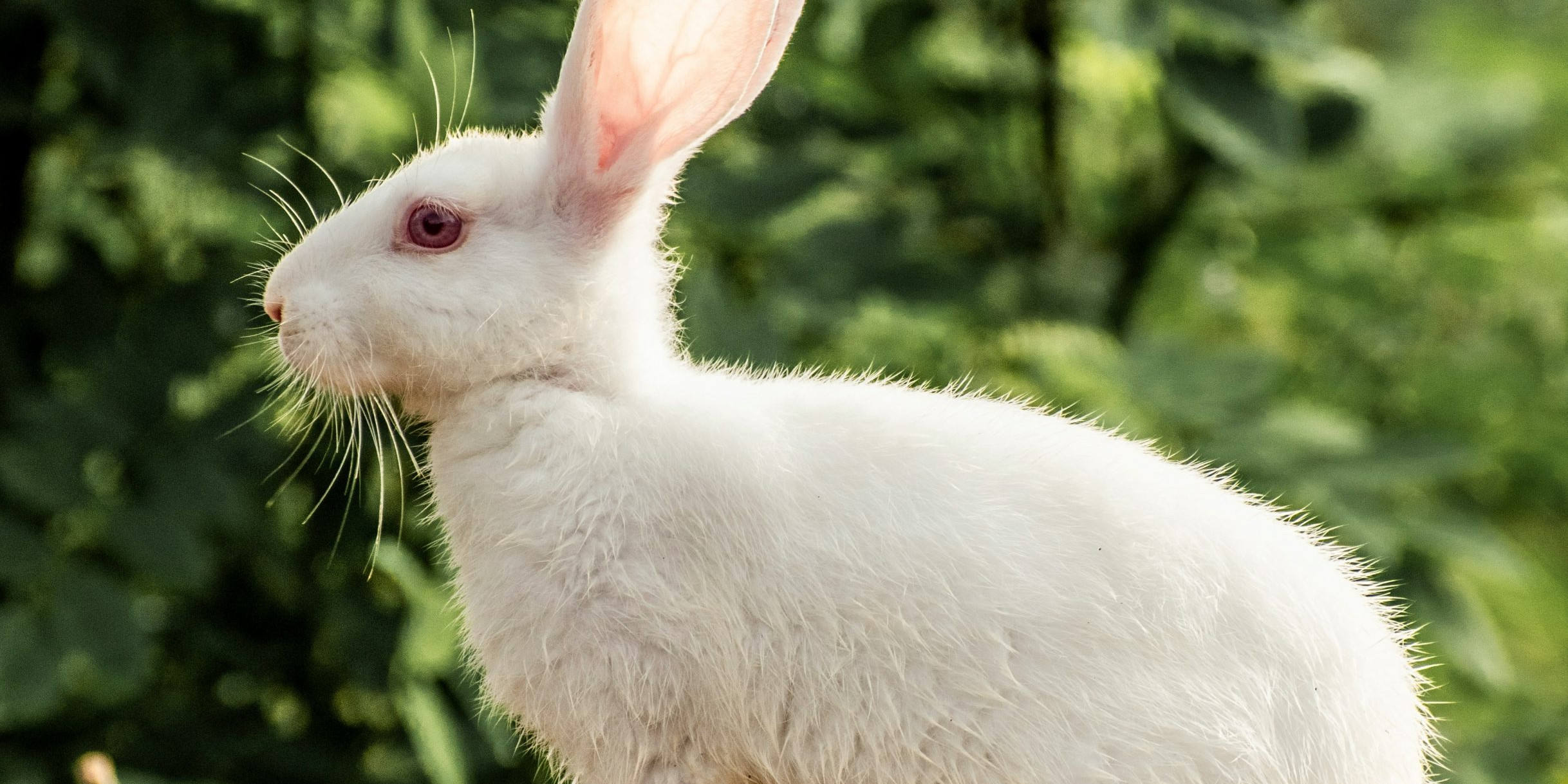Rabbits are not just pets; they’re companions with unique needs, especially when it comes to their ears. Understanding the intricacies of rabbit ear health is crucial for any bunny parent. Let’s hop into the world of rabbit ears, exploring everything from their anatomy to common ailments, and how to keep those floppy or perky ears in tip-top shape.
Jump to:
Introduction to Rabbit Ear Health
Rabbit ears are not just adorable; they’re complex structures that require attention and care. They’re sensitive, prone to various conditions, and are a window into your rabbit’s overall health.
Register for our latest in-depth reviews and product round-ups from the experts
Enter your email address below to receive our twice monthly reviews emails.
By entering your details, you are agreeing to our terms and conditions and privacy policy. You can unsubscribe at any time.
Anatomy of Rabbit Ears
- Structure: Rabbit ears are made up of cartilage, skin, and a rich network of blood vessels and nerves.
- Function: They help in regulating body temperature and are essential for their acute hearing.
Signs of Healthy Rabbit Ears
- Appearance: Clean, pink, and free of discharge or odor.
- Behavior: Alert and responsive to sounds.
Common Ear Problems in Rabbits
Rabbit ear issues can range from infections to mite infestations. Understanding these conditions is the first step in prevention and treatment.
Types of Ear Infections and Their Causes
- Bacterial Infections: Often related to upper respiratory issues. Common bacteria include Pasteurella, Staphylococcus, and E. coli.
- Parasites: Ear mites are a common culprit, causing itching and discomfort.
- Protozoal Organisms: Like E. caniculi, which can cause severe symptoms including head tilt and seizures.
Other Common Ear Issues
- Mites and Injuries: Mites burrow into the ear canal, causing pain and itching. Injuries can occur from scratching or environmental factors.
Preventing Ear Problems in Rabbits
Prevention is key in maintaining your bunny’s ear health. A combination of diet, environment, and regular checks can make a world of difference. For a comprehensive understanding of how diet impacts your rabbit’s health, consider exploring our guide on rabbit’s health.
Importance of Diet and Environment
- Diet: A balanced diet ensures overall health, indirectly affecting ear health.
- Environment: Keeping the living area clean reduces the risk of infections and parasites.
Regular Ear Cleaning and Care Tips
- Cleaning: Gently clean the ears with a soft, damp cloth.
- Regular Checks: Look for signs of redness, discharge, or unusual odor.
When to Seek Veterinary Care
Knowing when to consult a vet can prevent minor issues from becoming major problems. For more detailed information, navigate to rabbit veterinary care.
Recognizing Serious Symptoms
- Head Tilt and Loss of Balance: Indicative of inner ear issues.
- Discharge or Odor: Signs of infection or mites.
Importance of Professional Diagnosis and Treatment
Self-diagnosis can be risky. A vet can provide accurate diagnosis and treatment plans.
Treating Common Rabbit Ear Conditions
When it comes to treating ear conditions in rabbits, it’s all about understanding the cause and responding with the right care.
Home Care vs. Professional Treatments
- Home Care: Includes regular cleaning and monitoring for any changes.
- Professional Treatments: Necessary for infections, mite infestations, and more serious conditions.
Managing Infections and Mites
- Infections: Often require antibiotics prescribed by a vet.
- Mites: Treatment includes medicated drops and thorough cleaning of the rabbit’s environment.
Long-Term Ear Health Management
Ensuring your rabbit’s ears stay healthy over time involves routine care and understanding their needs.
Routine Checks and Maintenance
- Regular Vet Visits: Essential for early detection and treatment of ear problems.
- Home Monitoring: Regularly checking your rabbit’s ears for any signs of trouble.
Lifestyle Adjustments for Ear Health
- Diet: A balanced diet supports overall health, including ear health.
- Environment: Keeping their living space clean and free from irritants.
Understanding Rabbit Ear Behavior
Rabbit ears are not just for hearing; they’re a key part of their communication.
Ear Movements and Rabbit Communication
- Upright Ears: Indicate alertness or interest.
- Floppy or Downward Ears: Can signify relaxation or, in some cases, illness.
What Ear Positions Indicate
- Forward: Curiosity or attention.
- Backward: Fear or aggression.
Rabbit Breeds and Ear Health
Different rabbit breeds have varying ear health needs, especially when it comes to lop-eared varieties.
Breed-Specific Ear Issues
- Lop-Eared Rabbits: More prone to ear infections due to their ear structure.
- Upright-Eared Breeds: Generally have better air circulation but still require regular checks.
Special Considerations for Lop-Eared Rabbits
- Regular Cleaning: Due to their ear structure, they may accumulate more debris.
- Monitoring for Infections: They are more susceptible to ear infections.
Rabbit ear health is a fascinating and important aspect of their overall well-being. By understanding their needs, monitoring their health, and seeking professional care when needed, you can ensure your furry friend stays happy and healthy. Remember, those adorable ears are more than just a cute feature; they’re a vital part of your rabbit’s life.
Advanced FAQs on Rabbit Ear Health
Let’s address some common questions to give you a clearer picture of rabbit ear health.
It varies, but a general guideline is to check weekly and clean as needed.
Yes, inner ear issues can lead to balance problems.
Scratching, head shaking, and visible debris in the ear canal.
Jacquline Jackson
Meet Jacqueline, the insightful author and rabbit care expert at Hare Haha. With a deep passion for all things related to rabbit wellness, Jacqueline brings a wealth of knowledge to the Hare Haha community.
Related Posts
Understanding Rabbit Respiratory Health: A Deep Dive into Their Breathing System
Rabbits are fascinating creatures, not just for their adorable looks but also…
Managing Rabbit Allergies: A Guide to Coexisting with Your Furry Friends
Rabbits are adorable, aren’t they? With their twitchy noses and fluffy…
Seasonal Rabbit Wellness: Navigating the Seasons with Your Furry Friends
Rabbits, with their adorable twitching noses and fluffy tails, are not just…




